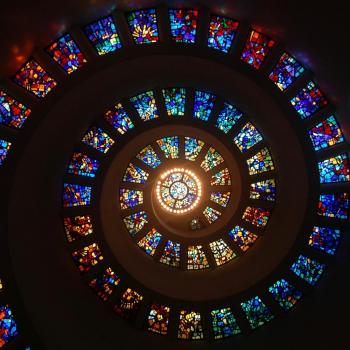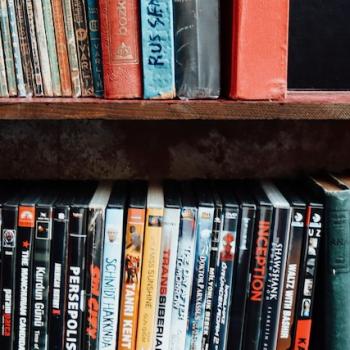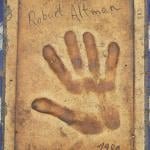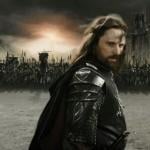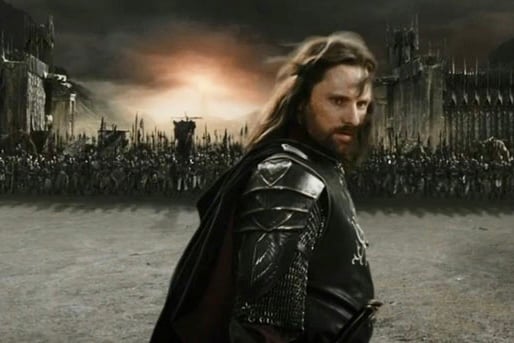
The Lord of The Rings is one of the highest selling and most beloved stories in the past one hundred years. Inspiring a devotion almost religious in nature, it’s often used, particularly by people of faith, as a meaningful metaphor for good and evil. But what if its depictions are flawed or worse dangerous?
I can still remember waiting anxiously outside the doors of a small theater outside Nashville to see The Return of the King, the last installment of The Lord of The Rings trilogy. Like many young millennials, the stories of Middle Earth had captured my thirteen-year-old imagination in a potent and powerful way few others had, and ultimately had a large influence on my decision to pursue a career as a film actor and author. Both the original texts and the film adaptations brought to life an enchanting universe filled with wizards, sword fights, and quests to save the world. But my engagement with The Lord of The Rings, authored by the great J.R.R. Tolkien, went beyond mere youthful obsession, and instead it became one of the formative stories I used to conceptualize and define good and evil. Myths and allegories, even ones in space and fantasy worlds, serve as a reflection of our own world, the reality of it, and our place in it. Every child wants to be the hero of a great story and the tales they’re exposed to early on help inform not only what heroes look like, but also what villains look like.
The Lord of The Rings has become one of the most lauded and beloved stories by literary lovers and lay-readers alike. Being one of the bestselling books of all time, it has garnered an almost scripture-like devotion that many, especially from the Christian tradition, point to as one of the great literary (and film) visions of good triumphing over evil. The heroes, while complex, are wholly pure, standing as beacons of light with shiny armor, flowing robes, and poetic tongues. And the villains are equally archetypal with their evil laughs, grotesque figures, and dragon-riding cloaked darkness. There is little ambiguity in the story about who the good guys and bad guys are, each painted and drawn in clear and distinct color and lines. My younger self found this vision of good and evil inspiring in my desire to be the hero of my own story. But now, looking back, I have begun to wonder if the simplicity and starkness of this story of another world isn’t entirely accurate or helpful in reflecting and identifying the good and evil in our own, real world, much less our own hearts.
So, Who Are The Good Guys?
As a kid who had grown up in the church and on great stories, when I found myself entering independent adulthood and on my own quest into the bowels of the infamous “secular Hollywood,” I felt little worry about being able to identify the good guys and bad guys, both of which stories like The Lord of the Rings had assured me would be obvious. But unfortunately, that wasn’t the case. I soon found myself disoriented, as the people who looked like good guys were often the ones who were doing the worst things, and the people with rough exteriors were often the most charitable, honest, and loving. But most people I came across weren’t just good or bad — the best people I knew turned out to have failings and flaws, and the worst people I met almost always had some redeeming quality. It turned out that when it came to good and evil, the real world was far more complicated than the stories had made it seem. I suddenly missed the more simplistic depictions of right and wrong I had found in The Lord of The Rings. I wanted it to be easy to know who the heroes and villains were, I wanted it to be obvious what right and wrong was.
I’m not alone in the desire to make morality easy. Right now, there are currently people clashing on college campuses, courtrooms, and comment sections who are not only sure they and their tribe are the heroes — they are positive anyone who thinks differently than them are the villains. Armed with the belief that “virtue” is easy to identify, often based off of aesthetic tribal signaling, and informed by movies and books that assured them everyone in the world is divided into people who are good or bad, heroes or villains. So each side of every issue, believing themselves to be “on the right side of history,” confidently attacks the people they have identified as the enemy. And I genuinely wish I could feel their self-assurance in having been able to so easily identify what team to play for. But in trying to figure out just what is right and what is wrong, by honestly looking into the beliefs and claims of any group on any side of any issue, what I discover is a collection of flawed people, created in the image of God, who, in their desire to feel like heroes, have turned everyone who looks or thinks differently than them into villains.
People Aren’t Orcs
The evil armies in The Lord of the Rings are made up mostly of Trolls, Orcs, and Uruk-hai, which were portrayed in the films as hideous and disfigured monsters with leathery skin. When they are occasionally given a line, it’s often just grunts and growls and gravelly, repugnant voices that serve only to bark out mindless, evil orders. This image is particularly evocative in the “creation of the Uruk-hai” scene, where we watch the Uruk-hai Orcs created — not born, but instead pulled disgustingly from mud. There are no signs of humanity in their portrayals; no back stories or context. We don’t know their worldview or particular perspective. They are simply an embodiment of evil. Which makes it much easier to watch them be slaughtered by the thousands by the fully fleshed out, sympathetic, and defined good guys. As a kid, this bothered me a bit. I found myself asking what the Orcs’ point of view was, what their motivation was, what they wanted. But as quickly as I could ask those questions, I’d be dismissed with the assurance that they were just evil and that’s all there is to it. The lack of any apparent humanity, the dehumanization of the enemies of Middle Earth, made the morality of its world simple and more easily digestible. And while this method made for a great story on film and page, I wonder if there’s a danger using that logic in our own world.
Dehumanization is as old as humanity itself. Ancient texts reveal the brutal acts performed from one nation, tribe, or group to another under the guise of the “other” being less than human. We see its evil in the American Slave Trade, where black people were considered legally to be only three-fifths human. We saw it during the Holocaust, when Jews were considered “subhuman.” There’s a natural human desire to strip the humanity of and deny rights to anyone who isn’t like us while assuring ourselves that we are the heroes. We turn people into Orcs so we don’t have to feel bad, and ultimately can feel justified in hating/oppressing/slaughtering/dismissing/demeaning whomever we feel threatens our ability to get what we want.
And while most of us today aren’t enslaving or slaughtering people, we still have that dehumanizing instinct to make Orcs out of people, which materializes in the appalling way we talk about the “other” across social media and within the confines of our tribe. We want our enemies to be simple, monolithically bad, and less human while demanding we are seen as complicated, good, and sympathetic.
How Now Should We Then Live?
I am not suggesting that morality is subjective. It’s not. I firmly believe that good and evil exist, and evil should be contended with. But I also have discovered that unlike stories like The Lord of the Rings suggest, it’s not obvious. It’s not always easily identifiable. And ultimately it’s not just found wholly wrapped up in “them,” but also dwells within us, in our own hearts and minds. Often, confronting evil looks less like imagining ourselves as the perfect heroes fighting the inhuman Orc armies of people in different tribes, political persuasions, and belief systems. Instead, confronting evil often looks more like dealing with our own dysfunction, prejudices, anger, selfishness, lusts, and pride. None of us are monolithically heroic and good, but nor are we totally villainous and evil. We are each humans created in the image of God who are complex and confusing mixes of goodness and brokenness.
I will always love The Lord of the Rings and think its cosmology serves a valuable purpose in offering young hearts a vision of the necessity to confront and defeat darkness. But as we get older and wiser, we might be well served to expose ourselves to stories that more accurately display complex characters who are neither all good nor all bad and who are battling with the darkness in themselves — the kind of characters we find strewn throughout scripture, like King David, who while being a killer and an adulterer, was also described as “a man after God’s own heart” and who wrote the most spiritually moving poetry in history. David is known for reckoning with his own sin instead of trying only to see it in others, displayed perfectly in Psalms 40:12-13 where he says this:
For troubles without number surround me;
my sins have overtaken me, and I cannot see.
They are more than the hairs of my head,
and my heart fails within me.
Be pleased to save me, Lord;
come quickly, Lord, to help me.
When we let go of the wrong-headed belief influenced by so many of our favorite tales, that people (including ourselves) are either all good or all bad, and instead accept that we are all a bit to blame for the fracture we see in the world, we allow ourselves an honesty that will help us love the unlovable, and find redemption from the brokenness that lives in our very hearts. So watch and read The Lord of the Rings, get swept up in its grand narrative, be inspired to be a hero in the story you’re telling. But do it with the realization that the Orcs and Uruk-hai and Dark Wraiths you will fight here in our real world aren’t just in the other, but often lay inside our own hearts, minds, and souls.




